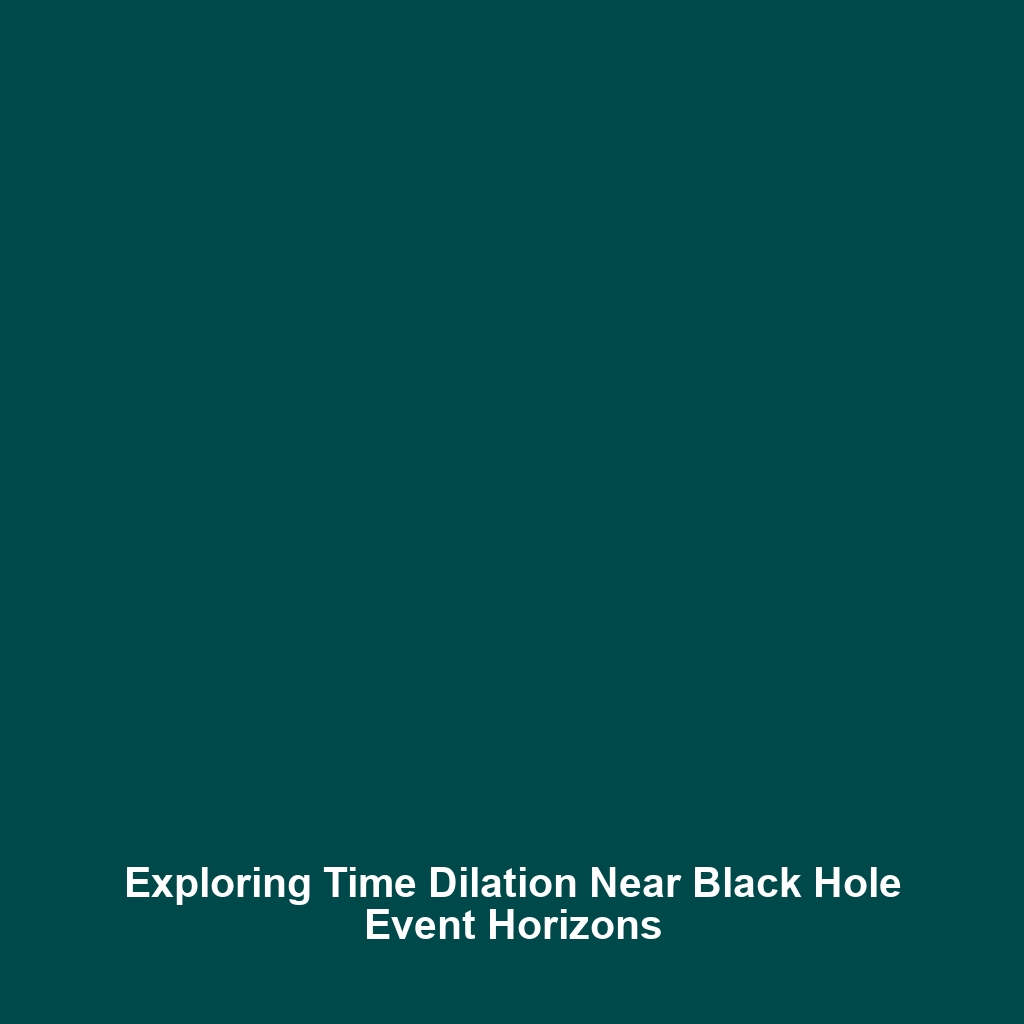Time Dilation Near Black Holes: How Time Slows Down as an Object Approaches the Event Horizon
Introduction
Time dilation is a fascinating phenomenon predicted by the theory of relativity, particularly significant when studying black holes. As an object approaches the event horizon of a black hole, time appears to slow down relative to an outside observer. This concept not only challenges our understanding of time but also has profound implications for the field of astrophysics and our grasp of the universe. Black holes, areas in space with gravitational fields so strong that nothing can escape, provide the perfect context for exploring time dilation and its effects on objects in extreme gravitational environments.
Key Concepts
Understanding Time Dilation
Time dilation occurs due to the curvature of spacetime caused by massive objects, like black holes. According to Einstein’s general theory of relativity, as an object moves closer to a black hole, the gravitational force it experiences increases, leading to a significant slowdown of time from the perspective of an outside observer. Key concepts related to this phenomenon include:
- Event Horizon: The boundary surrounding a black hole beyond which no information or matter can escape.
- Gravitational Time Dilation: The effect where time moves slower in stronger gravitational fields.
- Relativity of Simultaneity: The idea that simultaneous events may differ depending on the observer’s frame of reference.
Applications and Real-World Uses
The understanding of time dilation near black holes has significant implications in both theoretical physics and practical applications. Some real-world uses include:
- GPS Satellites: Time dilation effects must be accounted for to ensure that satellite positioning systems remain accurate. Engineers apply principles from black hole physics to correct timing discrepancies due to Earth’s gravity.
- Astrophysics Research: Insights into time dilation inform studies of stellar evolution and phenomena near black holes.
Overall, the applications of time dilation in black hole studies enrich our comprehension of physics at extreme scales.
Current Challenges
Studying time dilation and black holes presents several challenges, including:
- Observation Limitations: Black holes cannot be seen directly; observations rely on light and signals from surrounding matter.
- Theoretical Frameworks: Current theoretical models struggle to fully integrate quantum mechanics with general relativity.
- Technological Constraints: High-energy physics experiments required to simulate conditions near black holes are costly and complex.
Future Research and Innovations
Future research on time dilation near black holes aims to address existing challenges and unlock new understandings of the universe. Potential innovations may include:
- Gravitational Wave Astronomy: The detection of gravitational waves may provide new ways to study the behavior of time near black holes.
- Next-Generation Telescopes: Advanced technology could enhance our ability to observe regions close to black holes, shedding light on time dilation effects.
Conclusion
Time dilation near black holes reveals the intricate relationship between gravity and time, underscoring the remarkable aspects of black hole physics. Understanding this phenomenon not only enriches our knowledge of the universe but also paves the way for technological advancements and insights into the fundamental laws governing time and space. To learn more about black holes and their implications for our understanding of physics, explore our related articles on black hole formation and the theory of relativity.


